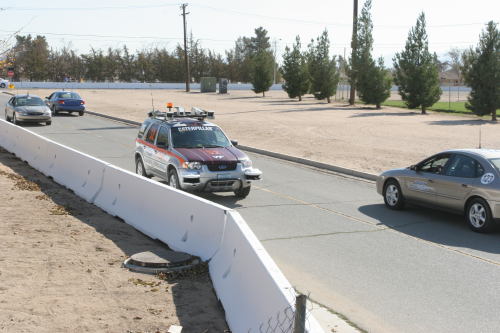Extensible sockets for wrench set
Submitted by brad on Fri, 2008-08-15 20:09Ok, this is something I have to believe somebody else has thought of, but I haven't seen it, so I thought I would ask readers if they have, and if not, to put it forward.
Everybody has a socket wrench set. The wrench heads tend to come with a square hole in the top, typically 1/2" or 3/8" square, into which the square drive from the ratchet inserts. There are sometimes spring-locks to keep it in place.




 This special chapter in my series of essays on Robocars describes a fictional week in the Robocar world, with many created examples of how people might use Robocars and how their lives might change.
This special chapter in my series of essays on Robocars describes a fictional week in the Robocar world, with many created examples of how people might use Robocars and how their lives might change.

 I discuss what predictions we can make about how long the Robocar future will take. While there are many technological challenges, the biggest barriers may be political, and even harder to predict.
I discuss what predictions we can make about how long the Robocar future will take. While there are many technological challenges, the biggest barriers may be political, and even harder to predict. Robocars will suggest a great number of possible changes in the way we design and market cars. I now encourage you to read:
Robocars will suggest a great number of possible changes in the way we design and market cars. I now encourage you to read: For part three of my series of Robocars, now consider:
For part three of my series of Robocars, now consider: